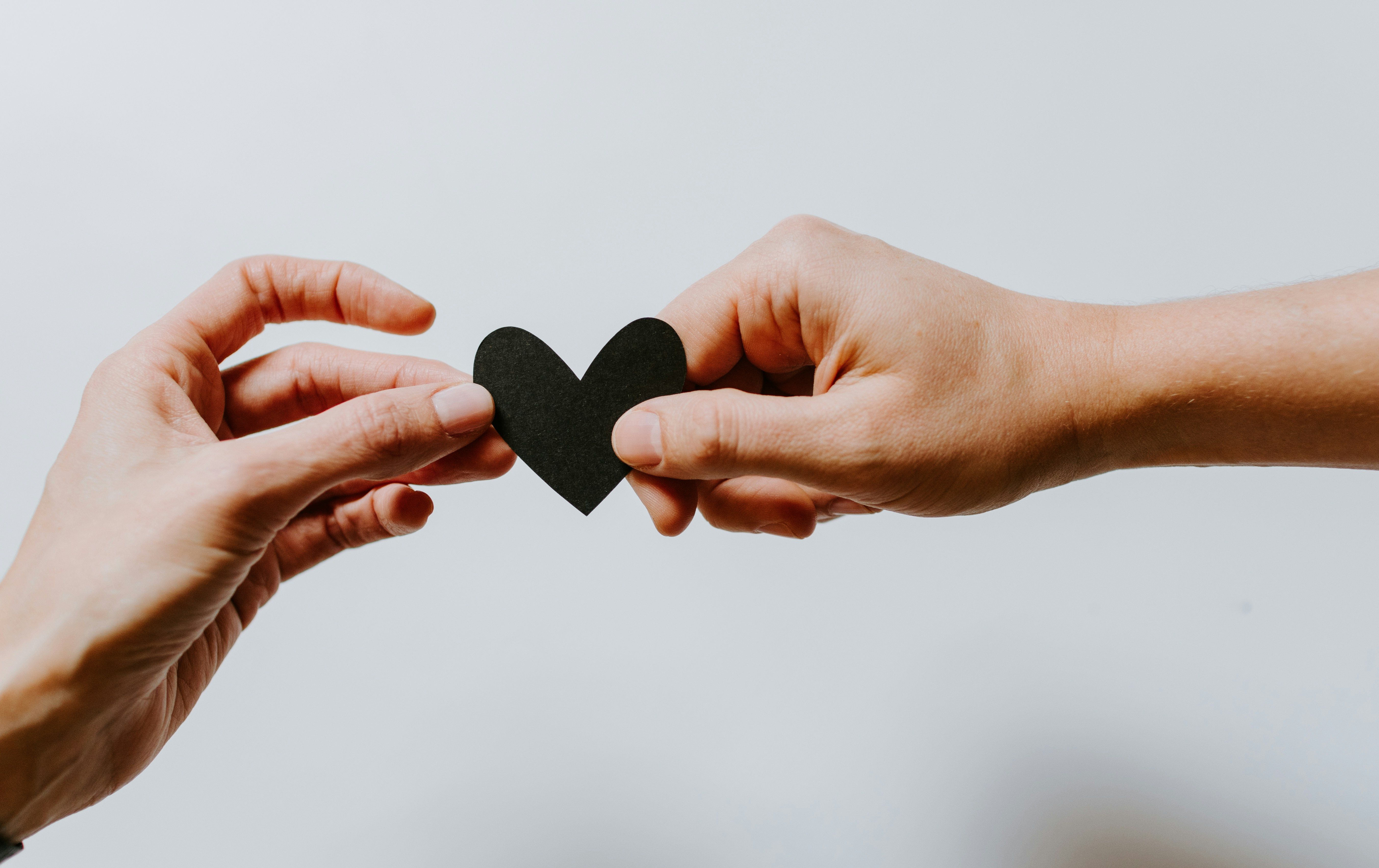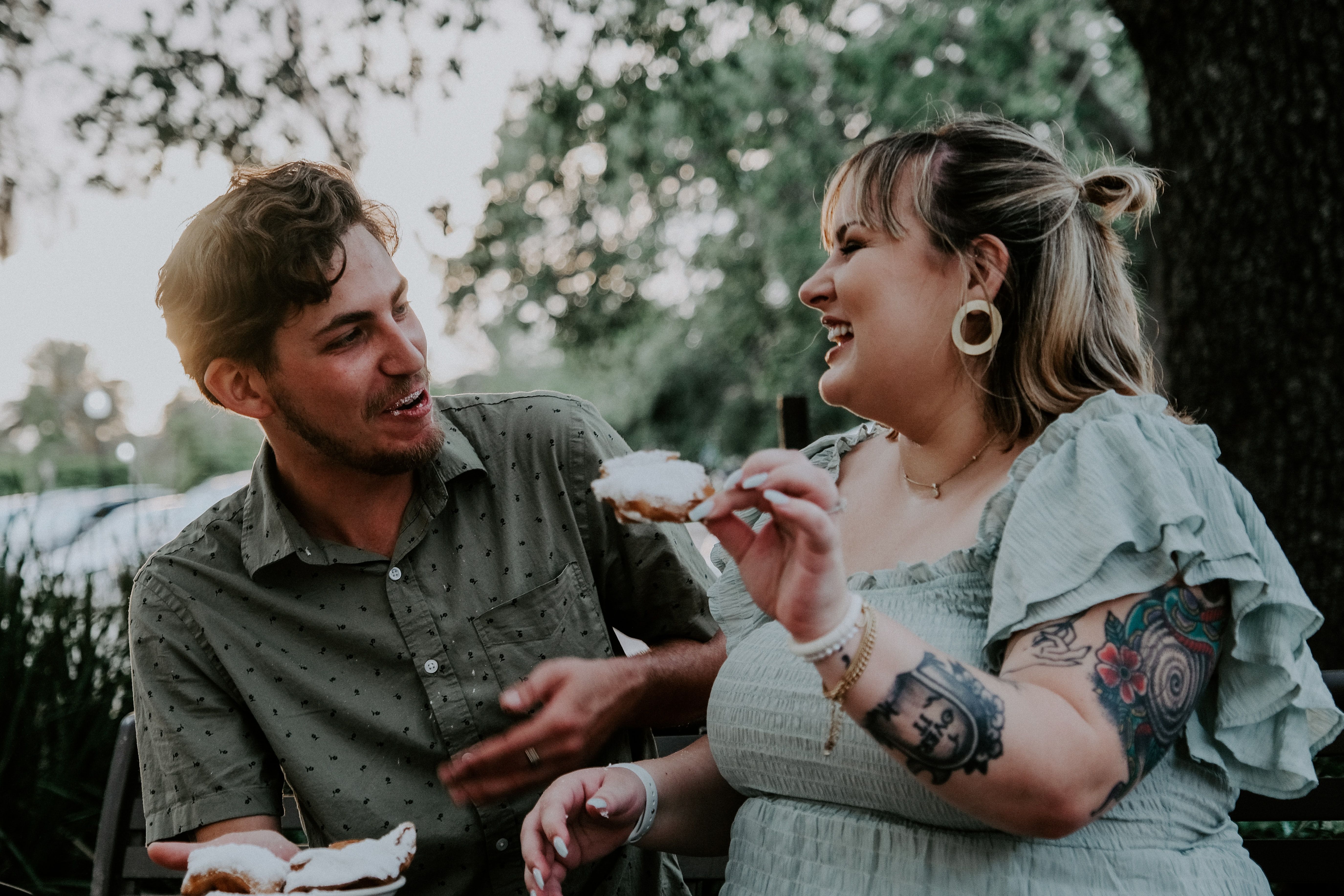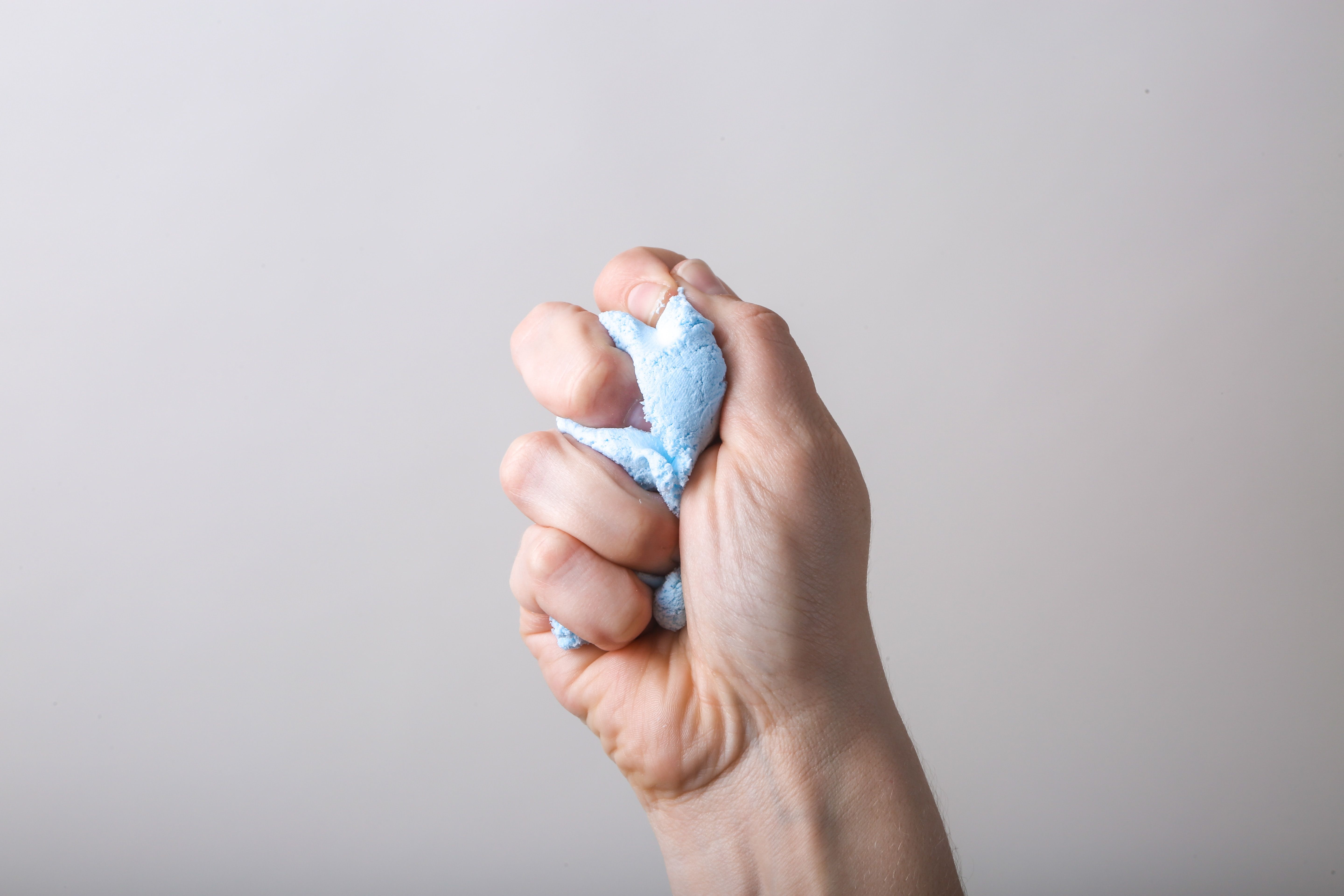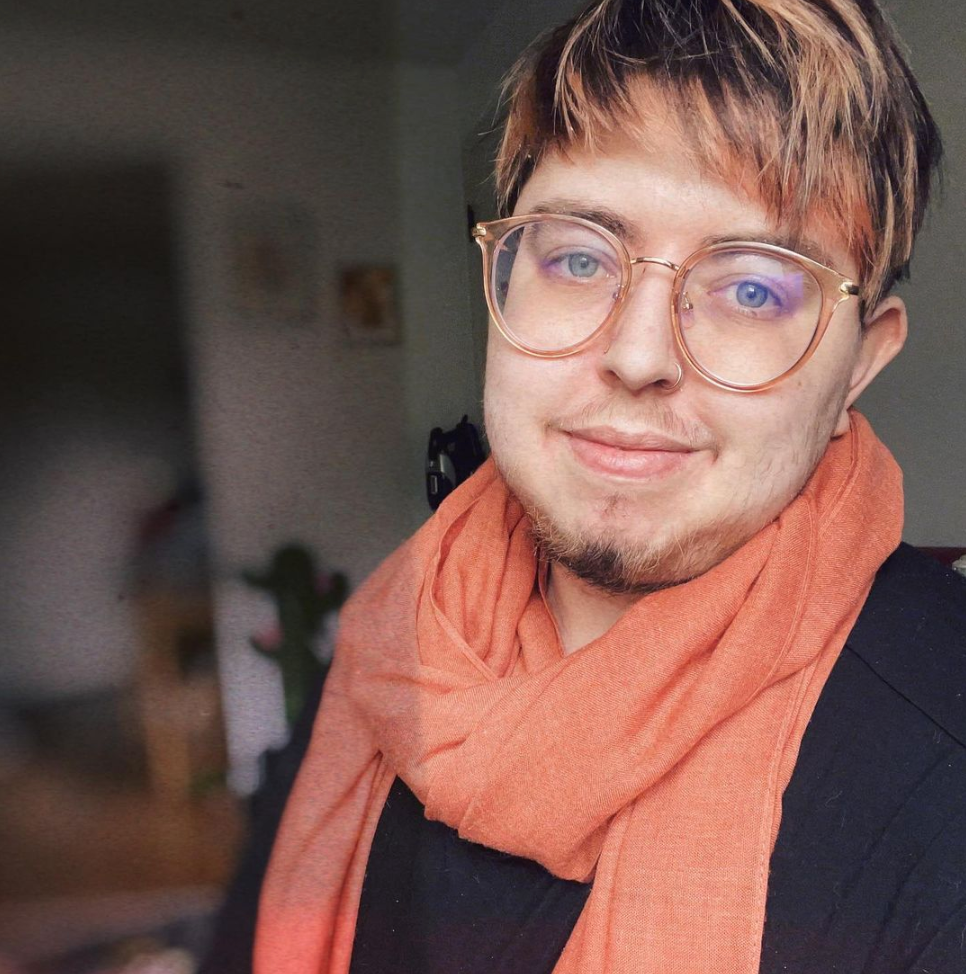
Why I’m Not ‘Fighting’ My Eating Disorder Anymore
It may sound like “giving up,” but accepting and even loving my eating disorder was truly the best thing I ever did for my recovery.
When I was first diagnosed with an eating disorder back in 2018 (anorexia and ARFID, to be exact), I started to absorb a very common narrative on what recovery was supposed to look like.
If you’re someone engaged in ED recovery and related communities, this will probably sound familiar. During those first initial years of treatment, a “battle” story was formed: My ED was a conniving and even malevolent force threatening to overtake me, trying wherever possible to “trick” me into abandoning my recovery, and I was tasked with defeating it.
Like many in the “ED warrior” community, I also gave my eating disorder a name — Edward — and made “him” my sworn enemy. I enthusiastically vowed to fight my eating disorder tooth and nail, and like the “warriors” surrounding me, I had a very specific view of my struggle: I was engaged in a perilous battle, and I would do whatever it took to overcome it.
Early in treatment, I remember a therapist once told me, “Edward would do anything to stick around. He pushes you toward chaos because it makes him stronger.” Another clinician said to me, “The reason you keep chasing toxic relationships is because Edward thrives in them.” Another still: “Edward won’t be happy until you’re dead.”
According to them, my eating disorder was gleefully rooting for me to struggle, because the eating disorder only ever cared about keeping itself alive, even if that cost me my life.
When other clients in support groups and yes, even my clinicians would compare an eating disorder to an abusive relationship (another common treatment narrative), the analogy really stuck with me. “Edward,” according to them, was an abuser that didn’t just follow me around — he lived within me, lurking in the shadows, waiting to exploit my vulnerabilities.
To be clear, there’s a reason why this “self versus eating disorder” battle narrative is so prolific and even helpful to some, and why even eating disorder professionals often push this narrative in treatment settings.
There can be a huge benefit to separating out what is authentically within our value system, versus the behaviors and values that one might attribute to the eating disorder.
For example, for someone with anorexia, it can be empowering to realize that this desire to make ourselves smaller is more a reflection of diet culture than it is our real desires. For someone with ARFID, it might be helpful to recognize that feeling threatened by new foods might be an aspect of the ED, and not necessarily reflective of how adventurous and curious we are otherwise in our lives.
Sometimes a narrative of separation allows us to decide what we’d like to “keep”—what about this struggle is authentic to us, and what about it doesn’t feel true—and I can see why that would be helpful. It’s what I initially found helpful, too.
Part of recovery is also grieving what our eating disorders have “taken” from us (time, health, connection, energy, and so much more), which does require that we allow ourselves to get angry and even outraged.
This can be much easier to access when there’s an enemy of sorts to channel that anger toward. This separation allowed me to be angry at Edward, which felt empowering, instead of simply being angry at myself, which would’ve reinforced my shame.
So what’s the problem, then?
As I progressed further in my own healing, I began to unravel the ways in which this narrative — while it may have been motivating and even helpful for a time — was no longer serving me.
As a survivor of complex trauma and abuse, I especially began to notice the ways in which this framing was perpetuating fear, hypervigilance, and a lack of trust in myself that mirrored the abuse I grew up with.
If I was carrying around an abuser within myself that wanted to hurt me, and that I couldn’t really get away from or escape, how was I supposed to feel anything but terrified?
So much of my earlier drive toward recovery was quickly transmuted into a panic-fueled compliance, in which I tried to adhere to my meal plan and treatment as perfectly as possible to ensure I wasn’t giving Edward a reason to resurface.
I became so fixated on never relapsing again that I’d lost sight of the joyful, liberated, and connected life I wanted to build for myself.
And as you might expect, this wasn’t sustainable, because as soon as I experienced a lapse of any kind, I became so dysregulated and fearful that it rendered me completely frozen and even powerless.
Being engaged in this constant “battle mentality” of sorts perpetuated a years-long cycle of momentary motivation — which was really about avoiding the pain of relapse, more than it was to live a freer and more authentic life — followed by a complete collapse when I experienced any kind of setback.
I mistakenly believed that the essential ingredient in my recovery was a desire to win and the inner resolve to do so — how else does one show up to a battle? — and if I lost that desire or drive, Edward would be waiting in the wings to completely overtake me. (I saw so many other clients express this same fear, that if they lost their will to fight, they would lose everything.)
This left no room for my humanity, convincing me if I wasn’t motivated, determined, and persistent enough, I was at risk. If I wasn’t engaged in a constant fight, I left the door open for Edward to sneak in; I couldn’t afford to give him any room (or myself any rest or flexibility), because, as they say, if I gave him an inch, he would take a mile.
Completely by accident, many of the clinicians and clients around me had helped to co-author a mythical “Edward” character so strong and so spiteful, I found myself losing hope that I could ever outmatch him.
But what I came to believe later in my journey, especially in doing more trauma-informed therapy like IFS (Internal Family Systems or “parts work”), was that every part of me was invested in my survival.
Even the most “self-destructive” and shameful things I did were in some way a desperate attempt to regulate my emotions, meet some kind of fundamental need, and keep myself safe, even if those behaviors no longer served me in the present.
And this meant that the eating disorder as I knew it couldn’t be “out to get me” or “trying to kill me.”
The more I explored this, the clearer it became that the ED was a part of me that deserved care and respect; it emerged to reclaim my autonomy, numb difficult emotions, and yes, protect me from harm, however misguided or misdirected.
It felt dishonorable to suggest that “Edward” was an abuser waiting in the wings, or a conniving asshole who enjoyed watching me suffer and starve.
The “battle mentality” had never given me real permission to experience any compassion or empathy toward my eating disorder. It was my enemy, meant to be defeated or overcome, and it was unacceptable to show that part of me any love, lest I “enable” it or feed into it.
And despite being encouraged by clinicians to have compassion for myself, I found these two ideas to be completely at odds: “How can you tell me to cast my eating disorder as an enemy, which is still a part of me, while directing me to also have compassion for all parts of myself?”
It was increasingly incompatible in my mind to villainize my eating disorder while attempting to have compassion for myself. The more hostile I became toward my eating disorder, the more frustrated I became with myself when I still engaged in it; the more I framed my ED as an enemy, the more shame I felt for “conspiring” with it.
This narrative, while it initially allowed me to access anger and grief and even determination, was now perpetuating the hypervigilance, fear, and shame that kept me stuck.
And it felt like a betrayal, in a sense, to reject the part of me that had fought to keep me alive during the most painful and traumatic times of my life.
I could see that restricting my food intake, shrinking my body, and being inflexible with food was preventing me from the life I now wanted, but it felt deeply unkind to look at the part of me that relied on those behaviors to feel safe and disown them entirely.
It may not have been the most “rational” course of action to starve myself, but I now trust that the younger version of me — the one who leaned into these coping mechanisms because that’s what felt most available at the time — was doing the best that he could.
And dishonoring the ED by making it my enemy was, in a very real sense, dishonoring the younger (and very vulnerable) parts of me that did everything they could to ensure there was a future me still in existence today.
Suddenly, I went from seeing my eating disorder as an enemy lurking in the shadows — a constant threat within and around me — to being a younger and more vulnerable part of me, deeply deserving of compassion, patience… and even love.
With these realizations stirring in my mind, I went back to intensive eating disorder treatment last November, committed to giving myself (and yes, Edward) a different kind of experience.
A recovery not driven by fear, but a recovery rooted in love.
And let me tell you, the discomfort that naming this can evoke in a recovery space is often palpable.
So many of us are afraid to offer any kind of tenderness to our eating disorders — much less to form some kind of loving alliance — as it can feel like a direct threat to our safety and health.
That makes sense, especially if you’ve been told that your eating disorder is conspiring against you. To suggest that it wants to help can feel like dangerous permission, as though we’re enabling the same harmful behaviors that landed us in acute care to begin with.
But I think there is another way, and I know firsthand that reimagining our relationship to our so-called “disorders” can completely transform our lives and our recoveries.
There are two analogies I came up with that have really helped folks understand the relationship I now have to my eating disorder and my recovery. I want to offer them both, so that folks can decide for themselves what kind of narrative serves them in their own journey.
My hope is that alternatives (not just mine, but in general!) can become more known, so that folks like myself who aren’t being served by the narrative of constant struggle can know there is a different way forward.
Analogy 1: My ED and I are on a baseball team together.
I like to imagine that my eating disorder is a very plucky, eager, and frantic baseball player… with some trust issues.
Edward believes he is the MVP of our team. He believes he is the best player — so much so that he won’t let anyone else hold the bat, because he doesn’t trust that anyone is as skilled, capable, and fast as he is.
He’s not totally making it up, either! Because for a while, that seemed to be true. Our team was exhausted and struggling. And back then, he could hit the ball! He could run the bases! But those earlier “wins” convinced him that not only was he our best player — it convinced him that the team couldn’t be trusted, and he decided that he was the only player that belonged in the game.
As captain of our team, though, I see things a little differently. I see Edward, with all of his good intentions, swinging that bat quite recklessly now. Because he’s been trying to play every position on our team for far too long, he’s at risk of hurting himself and his teammates, too.
We can honor Edward’s intention, while seeing that his role in this game needs to be different moving forward. We love that he wants the team to win… and we also know that it’s time for him to retire, or at the very least, take a seat on the bench.
That doesn’t mean he won’t shout from the bench, curse at the umpire, or pick a fight with the captain sometimes, especially when the game gets heated. That doesn’t mean he won’t try to take the bat and insist “no really, he’s got this one.” And maybe when the rest of the team is down, Edward might actually be our best bet to get through that nail-biting moment in the final inning.
As captain, it’s up to me to decide when Edward belongs in the game, and when Edward belongs on the bench. What I’m finding in my recovery is that, the vast majority of the time, Edward is best redirected — he’s allowed to give his input, but I likely won’t be giving him the bat.
If I go through a difficult chapter of life, and Edward grabs the bat, I also know that I don’t need to panic. Edward isn’t grabbing the bat because he’s trying to lose the game — he’s grabbing the bat because he doesn’t trust that our team is supported and resourced enough to win.
So instead of chastising Edward for his efforts, the next question I’ll ask is how to support our team, so that Edward doesn’t feel like he needs to resume his role as self-appointed MVP.
The more he can trust that our team has this game in the bag, the less urgency he’ll feel as he’s watching from the sidelines.
Analogy 2: My ED is an anxious pup on a car ride.
If you’ve ever taken an anxious dog on a car ride, you’ll know just how stressful it can feel. There’s constant whining, and no matter how many soothing words you offer, this dog — if not secure — will try to crawl right onto your lap, or might even try to leap out the window while you’re driving.
Here’s the thing: This doggo doesn’t know if we’re headed to the vet, or if we’re headed to his favorite off-leash dog beach. All he knows is that we’re in this terrifying glass room that moves really fast, and takes him places he has no control over.
Sometimes, I like to think of my eating disorder as an anxious pup in the car with me.
My job is to keep us safe, which means ensuring that this sweet doggo is buckled up (or in an appropriate carrier) so that he doesn’t make any rash decisions that endanger us. I need to keep my eyes on the road and my hands (mostly) on the wheel, so while I can crack a window or offer a treat or a scritch when he’s being quieter, at no point is this dog supposed to be driving the car.
I also can’t reason with this dog and tell him, “Hey, I get that you’re upset, but it’s actually going to be okay!” He doesn’t understand my words, he’s just a little guy! He has no idea what’s going on.
All I can do is comfort him as best as I can, and focus on getting us safely to our destination.
In that sense, it’s a matter of boundaries. I can tend to this dog’s very valid fears, but that doesn’t necessarily mean I’m turning the car around and going back home, that doesn’t mean our vet visit is going to become a beach day every time he cries, and that doesn’t mean I should throw my hands up and invite him to take a turn at the wheel.
This reminds me of an eating disorder, in a way, because so much of my own ED is rooted in fear that can be loud, overwhelming, and distracting. The key part of this is that the fear isn’t meant to drive — it’s meant to be seen and lovingly held, but it’s not a GPS, it’s not a helpful copilot, and it’s certainly not a safe and competent driver.
Even if this dog is trying to alert me to the danger he perceives, that doesn’t mean the danger he perceives should inform all the decisions I make for us both.
In “anxious dog mode” — when my eating disorder feels especially loud or activated — I start to ask myself what I can do to self-soothe and what supports I can reach for, while still staying the course of recovery as best I can.
If we do take a little detour, like stopping the car to keep everyone safe or even rescheduling our vet appointment for when we’re both more resourced, that’s okay too — this tenderness toward the fear that I’m feeling, the prioritization of our safety, and the commitment to our ultimate destination can all coexist.
In fact, that’s what a non-linear recovery often really looks like.
It’s so important to me that people engaged in some kind of “eating disorder recovery” understand that there are many, many ways to conceptualize and relate to an ED.
And the “correct” way of doing so, at the end of the day, is deeply personal.
I believe that the story of your body (and how you connect with food) should be in service of the life that feels most authentic, uplifting, and empowering for you. I crave recovery frameworks that center us as whole people, validating the very real pain that these behaviors emerge from, while still reckoning with the larger political and social systems that contribute to that pain.
While it’s beyond the scope of this specific blog post, it’s worth interrogating why we (in the recovery space and in the ED field) cling to the medical paradigm at all, at least without providing alternatives to clients who may be harmed by pathologizing or “diagnosing” their relationship to food and body.
So much of this “me versus eating disorder” narrative is rooted in the medicalization of eating disorders, framing them exclusively as illnesses to “cure” or “overcome” — and it’s worth exploring how this may not be helpful for everyone, at least in its current form.
Resources like RDs for Neurodiversity (which emphasize a more affirming lens to eating and body struggles associated with neurodivergence), IFS therapists like Ilyse Kennedy (whose accessible education around Internal Family Systems — including her book, “The Tender Parts: A Guide to Healing from Trauma Through Internal Family Systems Therapy” — has been very impactful), and the work of Gloria Lucas of Nalgona Positivity Pride (centering a decolonizing, anti-racist, and harm reduction lens to eating disorders) are just a few of the folks who have been hugely influential in my reimagining of my own relationship to EDs.
By breaking through shame and grief, I was able to love so many of the parts of me that I once believed were undeserving — not just my eating disorder, but the many parts of me that emerged, however unskillfully, in loving support of my continued survival.
To villainize my eating disorder now feels so brazenly antithetical to the aim of so-called recovery. Recovery, at least to me, is not meant to keep us cowering in the shadow of the ED — constantly trying to outrun its grasp or outmaneuver it.
Recovery is about creating a life so liberated, connected, and supported that the ED isn’t extinguished or annihilated, but instead, gently released from its protective role.
This is my deep hope for anyone who has been in the throes of an eating disorder (or whatever you decide to call that dark and difficult place, when food and the body itself have become threatening, instead of a source of connection, joy, pleasure, culture, and so much more — and yes, I can confirm there is much, much more).
I don’t wish to live my life clinging to the narrative that an abuser, a villain, or an ominous shadow is waiting in the wings, plotting my demise. That sounds all too familiar as a survivor of trauma, and I think it’s fair to say that many of us with trauma take on this narrative so readily exactly because of the ways we’ve been harmed.
But rather than opening up the possibility of a more intuitive and joyful relationship to food and body, I’ve found that this battle narrative can often eclipse that possibility, replacing it with fear and hypervigilance. This keeps so many of us stuck in the shadow of our past, constantly checking behind us, instead of looking toward a more expansive future.
So what would a recovery that isn’t singularly driven by fear really look like? What could a recovery rooted in compassion feel like?
For me, it starts with the dismantling of this narrative. To relate to my ED as something I have to “fight” or “beat” is a betrayal of all the younger versions of me that conspired to protect my life and my future. I wouldn’t be here without them.
Loving them — and loving me — is the only way forward.
As radical as it may sound, I love my eating disorder. Which is to say, I fiercely love every part of me that fought to keep me here, however unskillful and painful its attempts may have been.
And I refuse to dishonor any part of me by villainizing, rejecting, or shaming it into submission.
Feb 29, 2024

Looking for a therapist?
Get tips on finding a therapist who gets you.
By submitting this form, you are agreeing to Alma's privacy policy.



